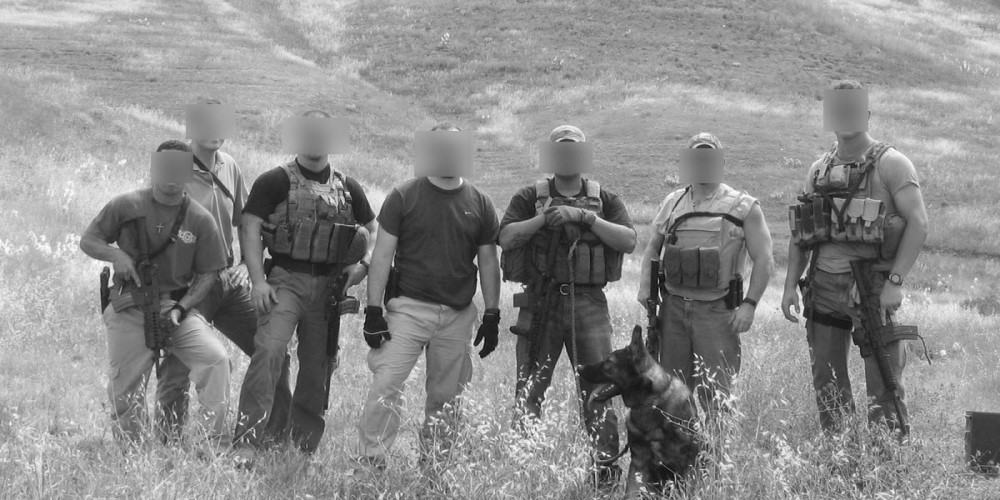In an increasingly interconnected and unpredictable world, ensuring the safety of corporate leaders is no longer optional. Executive protection (EP) is critical for safeguarding CEOs, board members, and key executives. However, not all executive protection teams are created equal. Poorly vetted EP teams can expose companies to security risks, legal liabilities, and reputational damage.
High-profile incidents, like the security failure involving UnitedHealthcare CEO Brian Thompson, highlight the severe consequences of inadequate executive protection. This case serves as a wake-up call for organizations to prioritize vetting EP teams to ensure their leadership’s safety and the company’s operational integrity.
In this article, we’ll explore the importance of executive protection, the risks of inadequate vetting, and how to choose the right EP team.
Why Executive Protection is Essential for Corporate Leaders
Corporate leaders face a variety of threats, ranging from physical harm to cyberattacks. These risks make executive protection a necessity, not a luxury. Key factors driving the need for executive protection include:
- High Public Visibility: CEOs and other leaders often represent the face of the company, making them prime targets for disgruntled individuals or activist groups.
- Financial Risks: Kidnapping for ransom and corporate espionage pose ongoing threats, particularly in high-risk regions.
- Reputation Management: The safety of leaders is directly tied to a company’s public image and investor confidence.
- Social and Political Unrest: Executives associated with controversial industries or decisions are particularly vulnerable to threats.
A skilled executive protection team mitigates these risks, ensuring leaders can focus on their business objectives.
Real-World Consequences of Poor Executive Protection
The case of UnitedHealthcare CEO Brian Thompson is a prime example of how lapses in executive protection can have serious consequences. In 2023, security oversights allowed malicious actors to breach personal and professional information. This incident garnered widespread media attention, damaged the company’s reputation, and raised questions about its commitment to leadership safety.
Other examples, such as insufficient crowd control leading to an automotive CEO’s public attack in 2019, demonstrate the catastrophic outcomes of hiring unqualified EP teams. These incidents expose companies to:
- Physical Risks to Executives: Poorly trained EP teams may fail to neutralize threats, leading to injury or death, and further inviting future threats.
- Reputational Damage: Security failures can erode public trust and confidence in the organization.
- Financial Liabilities: Security breaches often result in lawsuits, costly damage control efforts, and disrupted operations.
- Operational Disruptions: Security incidents divert focus from strategic goals, creating unnecessary distractions for leadership and staff.
The Boom of Poor-Quality Executive Protection Firms
It’s an unfortunate truth that many firms that offer executive protection services today started their firms in the heyday of the Global War on Terrorism (GWOT) after 9/11. While all of the nation’s warfighters were fighting the nation’s wars, former law enforcement professionals, foreigners, and low-skilled security guards found a heightened interest in high-end security.
Why the sudden interest? Prior to the GWOT, executive protection was not even a professional concept. After the US invasion of Iraq in 2003, Paul Bremer was named as the United States’ Ambassador to Iraq. The US Secret Service was asked to provide security for Ambassador Bremer; however, after an assessment, it was determined that this type of operation was outside of their abilities. It was at this point a private security firm by the name of Blackwater was hired to protect the Ambassador.

LISTEN: Stars & Stripes “Force for Hire” Podcast – Episode 2: Soldier turned contractor talks Blackwater training, Iraq mission to protect Ambassador Bremer
Led by a former Navy SEAL, Blackwater — especially in the initial few years of the Iraq War — consisted of the most skilled former SOF (i.e. SEALs, USMC Force Recon, Green Berets, etc.) who already had a few years of combat under their belts after 9/11. It was in this environment that Personal Security Details (PSD) and high-threat executive protection was born as a professional concept.
This coincided with Tech firms also starting their boom during this period. For reference, Facebook was founded in 2004 – three years after 9/11. There was both a need and a desire for high-end executive protection.
Executive Protection firms starting popping up to meet the demand, but the individuals starting these businesses had very little to no real-world experience in high-threat environments or conducting EP operations. These firms offered a polished and suited-up version of low-end security and billed it as high-end executive protection. All it took was landing a few high profile contracts (i.e. Facebook, Microsoft, etc.), and other corporations assumed these firms or individual contractors were experts in high-threat protection operations. In reality, many firms or individuals who claim to be EP experts have very little operational experience where it matters most. They tend to slip through the cracks until a major security incident occurs that reveals their inexperience and incompetence.
What to Look for in an EP Team
Executive Protection teams should be the cream of the crop. These are not basic security guards or close protection bodyguards. The best EP Agents will have extensive military experience (usually from special operations backgrounds), additional private military experience AND some law enforcement or private security experience.
EP agents are far more than just a simple bodyguard. Bodyguards are a physical barrier between a threat and a protectee. Actual EP agents, on the other hand, are a veritable one-man army. Because of their extensive military backgrounds, they often have specialized combat experience in high-threat foreign environments. Those EP agents with SOF backgrounds typically have trained special operations forces of other allied nations, so their networks and ability to operate extend far when traveling to a high-threat foreign nation. They usually have relationships with local military and law enforcement forces and it is not uncommon to have relationships within the foreign government. This can be invaluable if a sudden need for armed protection or extraction is needed while executives are traveling.
EP agents with former SOF backgrounds also typically come with a whole host of other skills that you wouldn’t normally think of when it comes to security. SOF operators can come with advanced medical skills that have been put to use time and time again in chaotic combat environments. Most SOF operators also graduated from some type of sniper/designated marksman training. The list goes on, but the point is that if you are expecting to hire the best EP agents for your C-suite, this is what you should be looking for.
In addition to all of the above mentioned attributes, skilled EP agents should also have demonstrated experience in domestic security operations if protecting a US-based executive. This might come in the form of law enforcement experience or private security experience as part of an EP detail or as a solo practitioner.

Most importantly, be aware that there are many firms and individuals who flat-out lie about their credentials or greatly exaggerate their experience. When vetting your EP team, you need to have someone verify their claimed credentials – as well as their reputation. Beware of those that claim they cannot disclose their backgrounds because they are “classified”. If someone claims to have a military or law enforcement background, they can be vetted for legitimacy no matter what unit they claim to have belonged to – and it takes only a few calls to determine their reputation.
The Risks of Hiring an Unvetted Executive Protection Team
Inadequate vetting of EP teams can have obvious severe consequences. Some of those risks include:
1. Lack of Real-World Experience
A great executive protection agent is an elite problem-solver because of their wealth of actual experience in complex and life-threatening scenarios. Because of their real-world experience, they tend to be calm when everyone else is panicking and will prove to be a go-to resource for an executive in crisis. Not all security professionals are equipped for executive protection. While professional EP schooling / training exists and can augment an already great candidate, EP schooling itself does not provide true EP experience.
2. Injury or Death
An unprofessional or inexperienced EP team will fail when it matters most and the price that is often paid is death or severe trauma. Hire a team or agent like your life depends on it, because it does.
3. Technological Deficiencies
Modern security threats include cyberattacks and surveillance. EP teams must stay ahead of these risks with advanced tools and expertise. Teams lacking technological skills leave executives vulnerable to such threats that can also quickly lead to physical threats.
4. Legal and Compliance Issues
Hiring unqualified security personnel increases the risk of liability. Negligence or misconduct by an EP team can result in lawsuits, fines, and regulatory scrutiny.
Best Practices for Hiring Executive Protection Teams
To ensure your leadership’s safety, follow these best practices when hiring EP teams:
- Partner with Experts: Collaborate with security consultants who specialize in executive protection or vetting EP agents. At Silent Professionals, we hold the highest industry standards for vetting security professionals for complex security jobs; however, we also restrict access to our services to only vetted employers. To see if you are eligible to utilize our vetting services, you can contact us here.
- Maintain a Requirements Checklist: Develop a list of qualifications, experience, and skills required for EP candidates. A security consultant can help you develop this so that you’re including the right qualifications for your specific needs.
- Invest in Long-Term Relationships: Establish ongoing partnerships with reputable EP providers rather than relying on in-house hires. To get the best EP team, you will need to frequently hire agents on an ad hoc rotational basis who have operational EP experience in a specific geographic location. This is especially important when traveling to high-threat environments or geographies. A reputable EP provider will manage all of this and make your security operations seamless while maintaining the very highest quality EP team for your needs at any given moment. We recommend a firm with consistently high standards in executive protection operations like Hyperion Services that employs EP agents and manages EP operations with only the most elite and vetted seasoned operators.
Don’t Compromise on Executive Protection
The stakes are too high to take shortcuts in hiring an executive protection team. High-profile incidents, such as those involving UnitedHealthcare CEO Brian Thompson, underscore the consequences of hiring inexperienced EP teams.
By thoroughly vetting EP teams for their credentials and experience, companies can create a robust security framework that protects their leaders and their organization. A well-vetted executive protection team is an investment in safety, reputation, and long-term success.

